I did not expect to like Double Dragon: Neon. In fact, I did not expect to even play Double Dragon: Neon. And why would I? At a glance, it brings to mind the atrocious Teenage Mutant Ninja Turtles IV: Turtles in Time remake that fiercely tried to sour my fond memories of that original game: it's polygonal, has a really crummy art style, and just looks slow and boring. The conventional wisdom seems to be that modern beat-em-ups just don't work anymore, so why would anyone play that?
Of course, then it debuted for free on PlayStation Plus. "I guess I have to download it now," I said, alone in my living room, covered in Cheetos and in just my underwear. "But I won't like it." So I downloaded the game, threw a controller at one of my housemates, and booted it up, totally ready to hate on the game in glorious, cynical co-op.
"But I guess it'll have to wait a second," I said, "because that intro was actually kind of funny the way the game paused and started playing a guitar riff when Marion got hit. And this music's pretty rad, too, and hell, even these backgrounds look nice with all the pink and blue colorization. And—wait just a fucking second here—am I having fun with this game that is quite clearly supposed to be total garbage?"
Well, shit.

Maybe just the first level is cool, I rationalized. But I bet the next level is going to be just terrible.
As it turns out, it only gets way better from there. Halfway through the second level, we'd (mostly) gotten a hang of the game's controls, discovered that we could high-five at any time (even if we're on opposite sides of the screen) to split our health between us, and both started singing along quietly to the amazing background music that I've embedded to the right for your listening pleasure.
"Follow me, follow me. Your love is calling me,
calling me."
The discerning reader might have guessed by now, though, that not everything in the game is good. In fact, if I hadn't been playing it with my housemate, I doubt I would have played past the first couple of levels. It's not a terrible game, but it just isn't that much fun, and it really all comes down to how the characters feel.
It's always tricky trying to describe why something in a game doesn't feel right because "feeling right" is such a nebulous and subjective concept in itself. The guns in Killzone 2, for example, were supposed to feel weighty and significant, but really, the extra momentum often just ended up making them feel like they were swimming across the screen, like the guns could never catch up with the reticle. Some people (like me) liked the "hefty" feel of the guns; others thought it felt "sluggish." Guerilla Games tried to fix that in Killzone 3 by making the guns lighter and more responsive, but to me it just felt like I was playing as a guy who was constantly overreacting to things, flinging his head this way and that way.
The Lee brothers in Neon just feel heavy to me, like they need to wind up everything they do. When you press the run button, they spend a good half-second gearing up, lifting one leg and bracing their arms. They move deliberately, ambling calmly across the screen — I guess they've done this once or twice before. There's even a mechanic called "Gleam" that gives you temporary double damage after you successfully dodge an enemy's attack, which sounds awesome, but the characters are just too slow and couldn't keep up with my commands that I pretty quickly just stopped trying to make it work. In a game like this, if the controls don't feel perfect, everything falls apart.
And sure enough, everything did.

In the old arcade roots of these beat-em-ups, when you hit a "Continue?" screen, the game really just wanted to know if you were going to put more quarters in. Pay another and the game would drop you back in, almost as though you never died at all. The quest to finally beat the game and see the ending is what kept you coming back and paying more. Today's games obviously don't have that since you own the game in full. Now it's easy to just blast through a beat-em-up and never play it again. Double Dragon: Neon tried to solve this dilemma, and as a result, I'm never going to play it again.
We made it all the way to the final boss fight, eager to put the game to bed at this point. Let me just tell you: it's a long road there, and the bosses preceding it are pretty miserable affairs. In fact, so was the entire last level that had us fighting the controls to dodge machinery and an endless stream of missiles.
But we're knee deep in the final boss fight and pretty close to beating the game when the boss pulls out a seemingly inescapable attack that instantly kills us both. Uh, what?
"No matter. Let's just press continue and knock this boss fight out now," said I, ever the optimist, just mere moments before pressing continue and having the game dump us back to the beginning of the level.
"No matter. Let's just knock this last level out now," said I, ever the optimist, just mere moments before making it all the way back to the final boss where the same inescapable instant-kill attack sends us back to the continue screen.
"Let's take a break," said I, ever the optimist, just a few weeks before we jumped back in, fought through the dreadful last level again, and were killed by the same ridiculous attack, sent back to the continue screen once more.
"What the fuck is the point of a continue screen if you don't continue where you left off?" spat I, furiously. "There's literally no difference if we hit continue or not. If we press it, we go back to the beginning of the level. If we don't, we get sent back to the level select and have to start from the beginning of the level. There's no difference."
Without a checkpoint before the final boss, or at least halfway through the level, there was no way we were going to attempt that again, so there ended our co-op playthrough of Double Dragon: Neon. I don't imagine we'll ever return to it.
In the end, I don't hate the game, and for the low price of "free," it wasn't a bad investment, but I couldn't really recommend it in any other capacity.
 Tweet
Tweet 






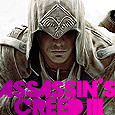
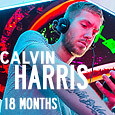

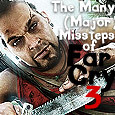
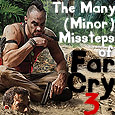
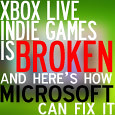
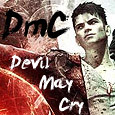
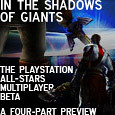

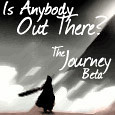




No comments:
Post a Comment